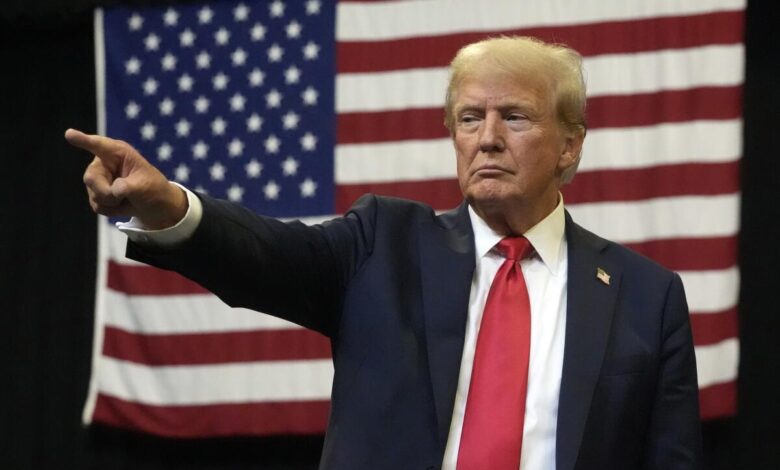
As the inauguration of President-Elect Donald Trump approaches, the cryptocurrency industry is keenly observing his administration’s selections for pivotal financial regulatory roles. Trump has vowed to terminate the “war on crypto” that began under the Biden administration, signaling a potential reshaping of leadership at the Securities and Exchange Commission (SEC) and other financial bodies.
Dan Gallagher: A Potential Peacemaker in Crypto Regulation?
Rumors are swirling around Dan Gallagher as a leading contender for the SEC chair position, according to a Reuters report. Gallagher, who served as a Republican SEC commissioner from 2011 to 2015, currently holds the position of Chief Legal and Compliance Officer at Robinhood Markets Inc. His candidacy is particularly favored by crypto executives who have notably contributed substantial funds to Trump’s campaign.
Another name in the mix is Paul Atkins, a former Republican SEC commissioner and the CEO of Patomak Global Partners, a consultancy firm. Atkins, who was part of Trump’s transition team in 2016, was previously considered for the SEC chair role. Additionally, Robert Stebbins, a partner at Willkie Farr & Gallagher and former SEC general counsel during Trump’s first term, is also being considered for significant financial regulatory positions.
Karoline Leavitt, Trump’s national press secretary, stated to Reuters, “President-Elect Trump will begin making decisions on who will serve in his second Administration soon. Those decisions will be announced when they are made.”
Meanwhile, current SEC commissioner Mark Uyeda has publicly declared his support for Trump’s plan to cease the regulatory crackdown on cryptocurrencies. Uyeda, a commissioner since 2022, is expected to take on the role of acting chair when Trump assumes office in January, as reported by FOX Business. Uyeda emphasized, “The Commission’s war on crypto must end, including crypto enforcement actions solely based on a failure to register with no allegation of fraud or harm. President Trump and the American electorate have sent a clear message. Starting in 2025, the SEC’s role is to carry out that mandate.”
Uyeda’s position is in sync with Trump’s campaign promise to stop the stringent enforcement tactics initiated by current SEC Chair Gary Gensler. Under Gensler’s guidance, the SEC has launched over a hundred enforcement actions against companies in the past three years, addressing both fraudulent acts and unregistered securities offerings.
While some of these cases involved undeniable instances of fraud and money laundering—such as the allegations against Sam Bankman-Fried, founder of the now-defunct exchange FTX—others have targeted established firms like Coinbase, Ripple, Kraken, ConsenSys, and Cumberland DRW for purportedly selling unregistered securities.
Gensler has consistently argued that all tokens, with the exception of Bitcoin, qualify as securities under the SEC’s jurisdiction—a stance that has sparked significant resistance from the industry, legal scholars, and congressional members. Although his term officially concludes in 2026, Gensler has expressed his intention to resign once the new administration assumes control.
Hester Peirce, another Republican SEC Commissioner renowned for her favorable stance on cryptocurrency and affectionately nicknamed “Crypto Mom,” was initially perceived as a prime candidate for the SEC chair. However, sources reveal that she has no interest in assuming the role. Instead, Peirce is reportedly interested in spearheading an internal “crypto task force” aimed at reassessing the SEC’s strategy on digital assets and promoting open communication with industry stakeholders.
Peirce has championed “safe harbor” provisions that would permit crypto firms to operate under regulatory oversight without the immediate threat of enforcement actions. A representative for Peirce declined to comment on her future plans.
Uyeda has also been vocal in his criticism of the SEC’s current crypto regulatory approach, describing it as a “disaster for the whole industry” during an appearance on FOX Business. He asserted, “We have been sending this ‘policy through enforcement,’ we’ve done nothing to provide guidance on it.”
At the time of publication, the overall cryptocurrency market cap was valued at $2.512 trillion.







